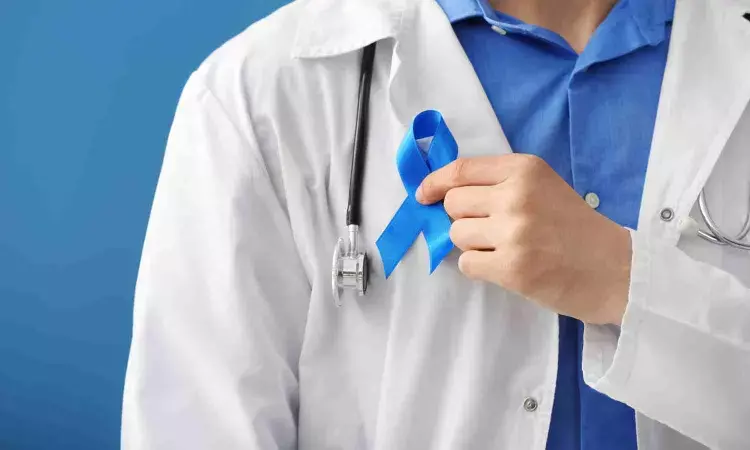- Home
- Medical news & Guidelines
- Anesthesiology
- Cardiology and CTVS
- Critical Care
- Dentistry
- Dermatology
- Diabetes and Endocrinology
- ENT
- Gastroenterology
- Medicine
- Nephrology
- Neurology
- Obstretics-Gynaecology
- Oncology
- Ophthalmology
- Orthopaedics
- Pediatrics-Neonatology
- Psychiatry
- Pulmonology
- Radiology
- Surgery
- Urology
- Laboratory Medicine
- Diet
- Nursing
- Paramedical
- Physiotherapy
- Health news
- Fact Check
- Bone Health Fact Check
- Brain Health Fact Check
- Cancer Related Fact Check
- Child Care Fact Check
- Dental and oral health fact check
- Diabetes and metabolic health fact check
- Diet and Nutrition Fact Check
- Eye and ENT Care Fact Check
- Fitness fact check
- Gut health fact check
- Heart health fact check
- Kidney health fact check
- Medical education fact check
- Men's health fact check
- Respiratory fact check
- Skin and hair care fact check
- Vaccine and Immunization fact check
- Women's health fact check
- AYUSH
- State News
- Andaman and Nicobar Islands
- Andhra Pradesh
- Arunachal Pradesh
- Assam
- Bihar
- Chandigarh
- Chattisgarh
- Dadra and Nagar Haveli
- Daman and Diu
- Delhi
- Goa
- Gujarat
- Haryana
- Himachal Pradesh
- Jammu & Kashmir
- Jharkhand
- Karnataka
- Kerala
- Ladakh
- Lakshadweep
- Madhya Pradesh
- Maharashtra
- Manipur
- Meghalaya
- Mizoram
- Nagaland
- Odisha
- Puducherry
- Punjab
- Rajasthan
- Sikkim
- Tamil Nadu
- Telangana
- Tripura
- Uttar Pradesh
- Uttrakhand
- West Bengal
- Medical Education
- Industry
Adding chemotherapy to hormone therapy helps control locally advanced prostate cancer: Study

For patients with locally advanced prostate cancer, combined treatment with chemotherapy and hormonal therapy offers extended control of prostate-specific antigen (PSA) levels, compared to hormonal therapy alone, reports a study in the April issue of The Journal of Urology®, an Official Journal of the American Urological Association (AUA). The journal is published in the Lippincott portfolio by Wolters Kluwer.
"Our clinical trial is the first to show a longer time to biochemical recurrence with chemotherapy plus standard hormone therapy for patients with locally advanced, high-risk prostate cancer," comments Jiahua Pan of Shanghai Jiao Tong University, People's Republic of China. "The findings add new evidence to support the use of combined chemohormonal therapy for a group of patients at high risk of recurrent, progressive prostate cancer."
Chemohormonal therapy for high-risk, locally advanced prostate cancer
The randomized controlled trial included 141 men with locally advanced prostate cancer, in which cancer has spread outside the prostate to nearby tissues. All patients had clinical characteristics placing them at elevated risk of distant tumor spread (metastasis) after initial treatment.
In a 2:1 ratio, patients were randomly assigned to treatment with the chemotherapy agent docetaxel plus hormonal (androgen deprivation) therapy or hormonal therapy alone. In both groups, these "neoadjuvant" treatments were followed by surgery (radical prostatectomy and extended lymph node dissection).
The study focused on biochemical progression-free survival – control of serum PSA levels – as a sign of tumor control. Rising PSA levels are an early sign of recurrent or progressive prostate cancer. The study also looked at pathologic responses: whether the study treatments were effective in shrinking the prostate cancer before surgery.
Addition of chemotherapy prolongs time to rising PSA levels
Both groups had good pathologic responses: the cancer was "downstaged" before surgery in 65% of patients assigned to chemohormonal therapy and 48% of with hormonal therapy only. The two groups also had similar rates of minimal residual disease – only a small number of cancer cells remaining after treatment.
Chemohormonal therapy had a greater effect on biochemical progression-free survival. At three years' follow-up, 29% of patients receiving chemotherapy plus hormonal therapy remained free of rising PSA levels, compared to 9.5% with hormonal therapy only.
Median time to rising PSA levels was 17 months with chemohormonal therapy versus 14 months with hormonal therapy alone. Patients receiving chemotherapy also had a higher treatment-free survival rate: 8.5% required no further prostate cancer treatment through five years' follow-up. The two groups had similarly low complication and adverse event rates.
On its own, neoadjuvant hormonal therapy can improve tumor control in locally advanced prostate cancer, but studies have shown limited effects on patient survival. The combination of docetaxel chemotherapy and hormonal therapy has yielded inconsistent results, likely reflecting differences between studies.
The new study is the first to show improvement in biochemical recurrence rate with chemohormonal therapy in this group of patients. The results also point to possible improvements in other important outcomes.
The authors note that their study is limited by relatively short follow-up times – making it impossible to evaluate the effects on "more clinically significant endpoints," including overall survival and risk of death due to prostate cancer. "Our study suggests that neoadjuvant docetaxel-based chemotherapy could bring significant improvement for patients," the researchers write. They emphasize, "longer follow-up is needed for more supportive evidence."
Reference:
Qian H, Chi C, Tricard T, Zhu Y, Dong L, Wang Y, Sha J, Wang J, Ma Z, Wang Y, Liu J, Dong B, Pan J, Xue W. A Prospective Randomized Trial of Neoadjuvant Chemohormonal Therapy vs Hormonal Therapy in Locally Advanced Prostate Cancer Treated by Radical Prostatectomy. J Urol. 2024 May;211(5):648-655. doi: 10.1097/JU.0000000000003876.
Dr Kamal Kant Kohli-MBBS, DTCD- a chest specialist with more than 30 years of practice and a flair for writing clinical articles, Dr Kamal Kant Kohli joined Medical Dialogues as a Chief Editor of Medical News. Besides writing articles, as an editor, he proofreads and verifies all the medical content published on Medical Dialogues including those coming from journals, studies,medical conferences,guidelines etc. Email: drkohli@medicaldialogues.in. Contact no. 011-43720751


